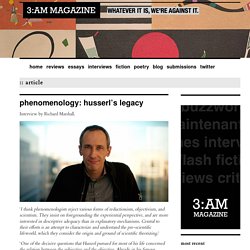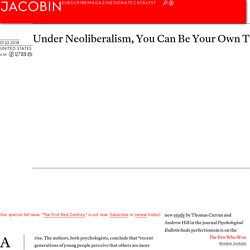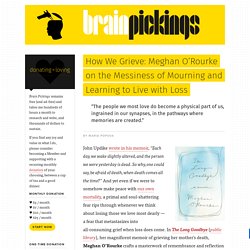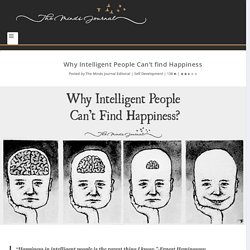

There is no such thing as western civilisation. Kate Manne: The Shock Collar That Is Misogyny - Guernica. What Elliot Rodger did on the evening of Friday, May 23, 2014, isn’t contested, but the reason he did it is.

That night Rodger knocked on the door of a sorority house near the University of California, Santa Barbara, and when the women inside didn’t let him in, he left and shot three women who were on the sidewalk, and then continued the rampage, ultimately killing six people and injuring fourteen. He then shot and killed himself. Before the attacks, Rodger posted a video of himself online, declaring that he intended to punish women for not giving him the attention he felt he deserved—and the men whom he perceived as receiving that attention and therefore envied. In light of the evidence, a number of feminist commentators called the killing spree an act of misogyny, part of a pattern of gender-based rampages. But others in the media and the academy argued differently.
It was then that Kate Manne, an assistant professor of philosophy at Cornell University, started to write. A feminist philosopher makes the case against Jordan Peterson. Philosophy and Logic. Chuang Tzu: "The Dexterous Butcher" Phenomenology: Husserl's Legacy. Interview by Richard Marshall.

‘I think phenomenologists reject various forms of reductionism, objectivism, and scientism. They insist on foregrounding the experiential perspective, and are more interested in descriptive adequacy than in explanatory mechanisms. Central to their efforts is an attempt to characterize and understand the pre-scientific lifeworld, which they consider the origin and ground of scientific theorizing. Postmodernism Did Not Take Place: On Jordan Peterson’s 12 Rules for Life - Viewpoint Magazine. A specter is haunting North America — the specter of postmodernism.

Under Neoliberalism, You Can Be Your Own Tyrannical Boss. A new study by Thomas Curran and Andrew Hill in the journal Psychological Bulletin finds perfectionism is on the rise.

The authors, both psychologists, conclude that “recent generations of young people perceive that others are more demanding of them, are more demanding of others, and are more demanding of themselves.” When identifying the root cause of this growing appetite for excellence, Curran and Hill don’t mince words: it’s neoliberalism. Neoliberal ideology reveres competition, discourages cooperation, promotes ambition, and tethers personal worth to professional achievement. Unsurprisingly, societies governed by these values make people very judgmental, and very anxious about being judged.
Psychologists used to talk about perfectionism as though it were unidimensional — only directed from the self to the self. Are Christians Supposed to Be Communists? Why Happy People Cheat - The Atlantic. “Most descriptions of troubled marriages don’t seem to fit my situation,” Priya insists.

“Colin and I have a wonderful relationship. From the Enlightenment to the Dark Ages: How “new atheism” slid into the alt-right. The “new atheist” movement emerged shortly after the 9/11 attacks with a best-selling book by Sam Harris called “The End of Faith.”

This was followed by engaging tomes authored by Richard Dawkins, Daniel Dennett and the late Christopher Hitchens, among others. Avowing to champion the values of science and reason, the movement offered a growing number of unbelievers — tired of faith-based foolishness mucking up society for the rest of us — some hope for the future.
For many years I was among the new atheism movement’s greatest allies. From the start, though, the movement had some curious quirks. Philosophy in the Contemporary World: Sounds of Silence, or Are We Responsible for What We Avoid Saying? By Elisabeth Camp Recent testimony by James Comey and Jeff Sessions before the Senate Intelligence Committee offers fertile terrain for anyone interested in the nuances of verbal communication.

If President Trump did indeed request that Comey “let this go, let Flynn go,” then that would prima facie appear to constitute, or at least contribute to, obstruction of justice. But assessing the legal and political implications of Trump’s purported utterance requires establishing that he did indeed make such a request. New Atheism's Islam-obsessed rape and rescue fantasy. Whenever I use the term “New Atheism”, I'm invariably asked, “What is that and what is old atheism?”

So allow me to clarify. Wikipedia defines New Atheism as a “social and political movement” that advocates the view that "religion should not simply be tolerated but should be countered, criticised, and exposed by rational argument wherever its influence arises". The Internet Encyclopedia of Philosophy says it’s specifically the anti-religious views ascribed by Richard Dawkins, Sam Harris and Christopher Hitchens. When I think of New Atheism I think of a post-9/11 reactionary, anti-religious movement that proactively seeks to eradicate religion, wherever and whenever it can find it.
New Atheists have internalised Hitchen’s famous subtitle, “religion poisons everything,” which is a belief based on feeling rather than fact. The Philosopher's Meme. Who Are You and What Do You Really Know? – The New Inquiry. Seneca on Grief and the Key to Resilience in the Face of Loss: An Extraordinary Letter to His Mother. How We Grieve: Meghan O’Rourke on the Messiness of Mourning and Learning to Live with Loss. John Updike wrote in his memoir, “Each day, we wake slightly altered, and the person we were yesterday is dead.

So why, one could say, be afraid of death, when death comes all the time?” Cookies are Not Accepted - New York Times. Why Intelligent People Can't find Happiness - The Minds Journal. “Happiness in intelligent people is the rarest thing I know.”

-Ernest Hemingway The presence of a faithful and loving partner, a great family life and a successful career may not be enough to prevent an intelligent soul to feel grief and melancholy. Here are six most likely reasons why happiness seems to elude highly intelligent people: Life without language. Thought without symbols — life without language — it’s a cognitive reality that is virtually impossible for most modern humans to fathom. For the vast majority of us, our thought processes have been profoundly shaped by the introjection of language into our cognitive worlds, the taking on board of a massive intellectual prosthesis, the collective product of countless generations. Human thought, for the majority, is not simply the individual outcome of our evolved neural architecture, but also the result of our borrowing of the immense symbolic and intellectual resources available in language.
What would human thought be like without language? Author Susan Schaller The question of the relationship between language and ‘mind’ (a word I hate using), or between symbolic resources and cognitive abilities (there, that’s equally vague!) We might try to imagine thinking without language, but, of course, we’d be doing that with language itself. Why Facts Don’t Change Our Minds. In 1975, researchers at Stanford invited a group of undergraduates to take part in a study about suicide.
They were presented with pairs of suicide notes. In each pair, one note had been composed by a random individual, the other by a person who had subsequently taken his own life. The students were then asked to distinguish between the genuine notes and the fake ones. Some students discovered that they had a genius for the task. Out of twenty-five pairs of notes, they correctly identified the real one twenty-four times. Philosophy of Mind: all-female syllabus - Zoe Drayson. Welcome to my all-female syllabus for teaching undergraduate philosophy of mind. I created this syllabus largely to show that it can be done, and to create a resource for other philosophers looking to add female authors to their syllabi. (I did not create this syllabus in an attempt to rid the philosophical world of men.) I was also inspired by finding this personal ad on Google. How To Pull The Ground From Under Right-wing Populism.
Culture - Would sex with a robot be infidelity? Imagine you’re rich enough to spend $40,000 to visit a town for a day where rules don’t matter. To tell someone they're wrong, first tell them how they're right — Quartz. The 17th century philosopher Blaise Pascal is perhaps best known for Pascal’s Wager which, in the first formal use of decision theory, argued that believing in God is the most pragmatic decision.
But it seems the French thinker also had a knack for psychology. As Brain Pickings points out, Pascal set out the most effective way to get someone to change their mind, centuries before experimental psychologists began to formally study persuasion: I'll Bee There for You: Do Insects Feel Emotions? Charles Darwin once wrote in his book The Expression of Emotions in Man and Animals that insects “express anger, terror, jealousy and love.” Karen Armstrong on Sam Harris and Bill Maher: “It fills me with despair, because this is the sort of talk that led to the concentration camps” Ten underappreciated philosophers of the Islamic World [timeline] How VR Gaming will Wake Us Up to our Fake Worlds. “It has no relationship whatsoever to anything anchored in some kind of metaphysical superspace. It’s just your cultural point of view […] Travel shows you the relativity of culture.” Women Among Philosophers on Twitter - @TrueSciPhi. Descartes recognised only the authority of reason. But reason is only an instrument and Descartes was superficial #NIETZSCHE.
George Lakoff - What Makes Personal Identity Continue. On Smell. Smell is one of our primary and most immediate ways of understanding and interpreting the world and everything in it. We naturally categorise things into good and bad smells, and gravitate towards the former. Billion dollar industries exist around masking smells; making our environments and bodies smell better and less human. We often intuitively talk about smell as a shortcut to memory — with a certain, distinct scent being enough to remind us of of a certain time or place, often with great emotional intensity. Yet throughout history, smell has oftentimes been considered a lower sense, through which we can only access a baser reality. Narratives. Let’s ditch the dangerous idea that life is a story ... ‘Each of us constructs and lives a “narrative”,’ wrote the British neurologist Oliver Sacks, ‘this narrative is us’.
Likewise the American cognitive psychologist Jerome Bruner: ‘Self is a perpetually rewritten story.’ Against Self-Criticism: Adam Phillips on How Our Internal Critics Enslave Us, the Stockholm Syndrome of the Superego, and the Power of Multiple Interpretations. Science has next to nothing to say about moral intuitions. For centuries, philosophers have been using moral intuitions to reason about ethics. What It Feels Like to Be an Octopus. On a recent Sunday, at my local Italian market, I considered the octopus. Philosophical Meditation. Philosophy versus Neuroscience on the Question of Free Will. The Myth of Sysiphus. Arguments for Incompatibilism. Arguments for Incompatibilism. The ‘Free Will Problem’ The fiction of humanity: An interview with John Gray. 8 - Violence and ethics in Camus Cambridge Companions Online.
Think big, be free, have sex … 10 reasons to be an existentialist. Kierkegaard on Why Anxiety Powers Creativity Rather Than Hindering It. Constructing the Modern Mind. Selected Minor Works: A Philosophical Exchange, of Sorts. Big Monkey, Helpy Chalk: The full talk for tomorrow. Terry Eagleton reviews ‘The God Delusion’ by Richard Dawkins · LRB 19 October 2006.
The cult of ignorance in the United States: Anti-intellectualism and the "dumbing down" of America. Redirect?url= What Would Žižek' Do? Redeeming Christianity's Perverse Core. Frank Wilczek on Beauty, Physics, and Philosophy. Jean paul sartre being and nothingness. Aj ayer language truth and logic. The Book of Symbols: Carl Jung’s Catalog of the Unconscious. John Updike on the Universe and Why There is Something Rather Than Nothing. John Updike on the Universe and Why There is Something Rather Than Nothing. Why the multiverse is all about you - The Philosopher's Zone. Why the multiverse is all about you - The Philosopher's Zone. Algorithmicity, Islamic Art, and Virtual Philosophy: Thoughts on Laura Marks’ ‘Enfoldment and Infinity’ Think big, be free, have sex … 10 reasons to be an existentialist.